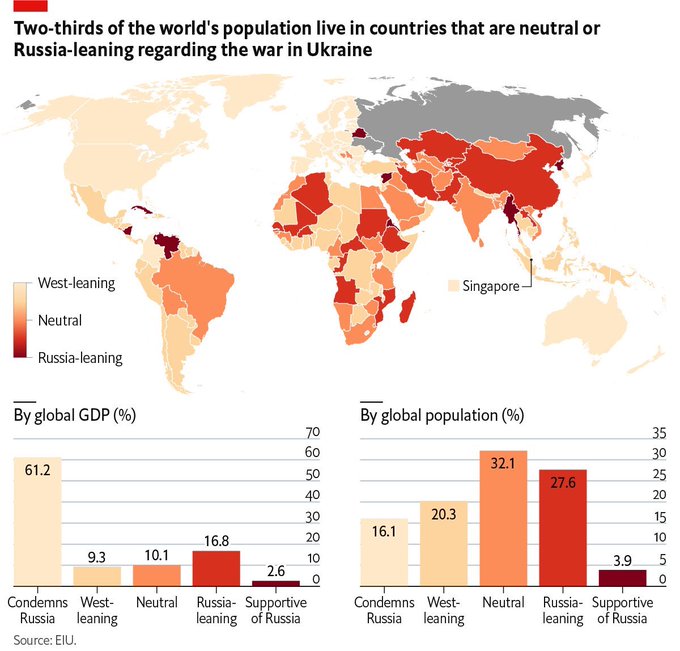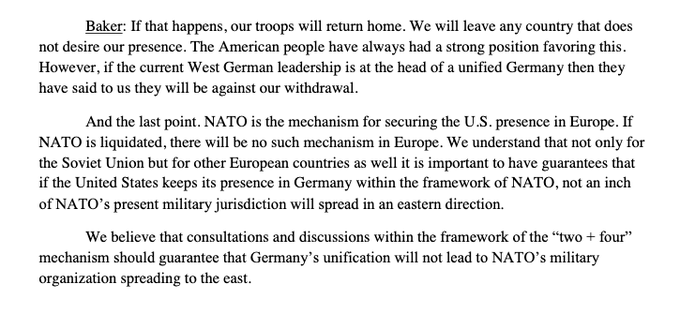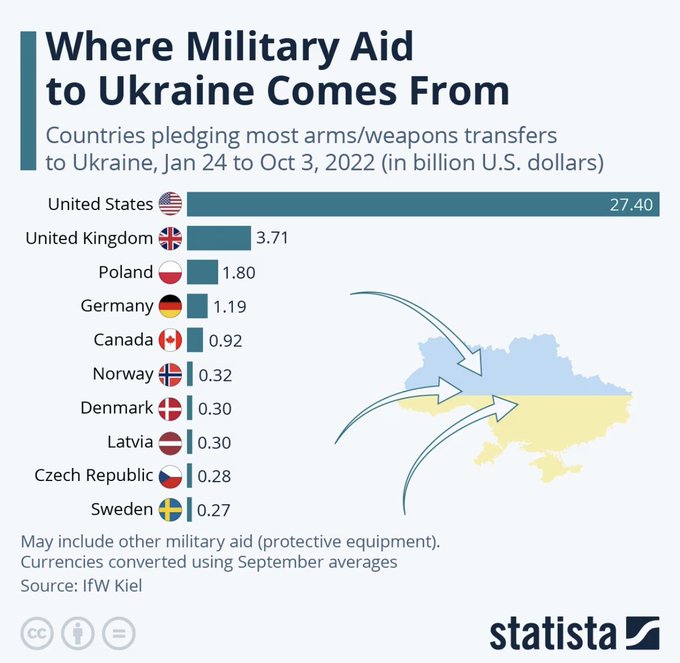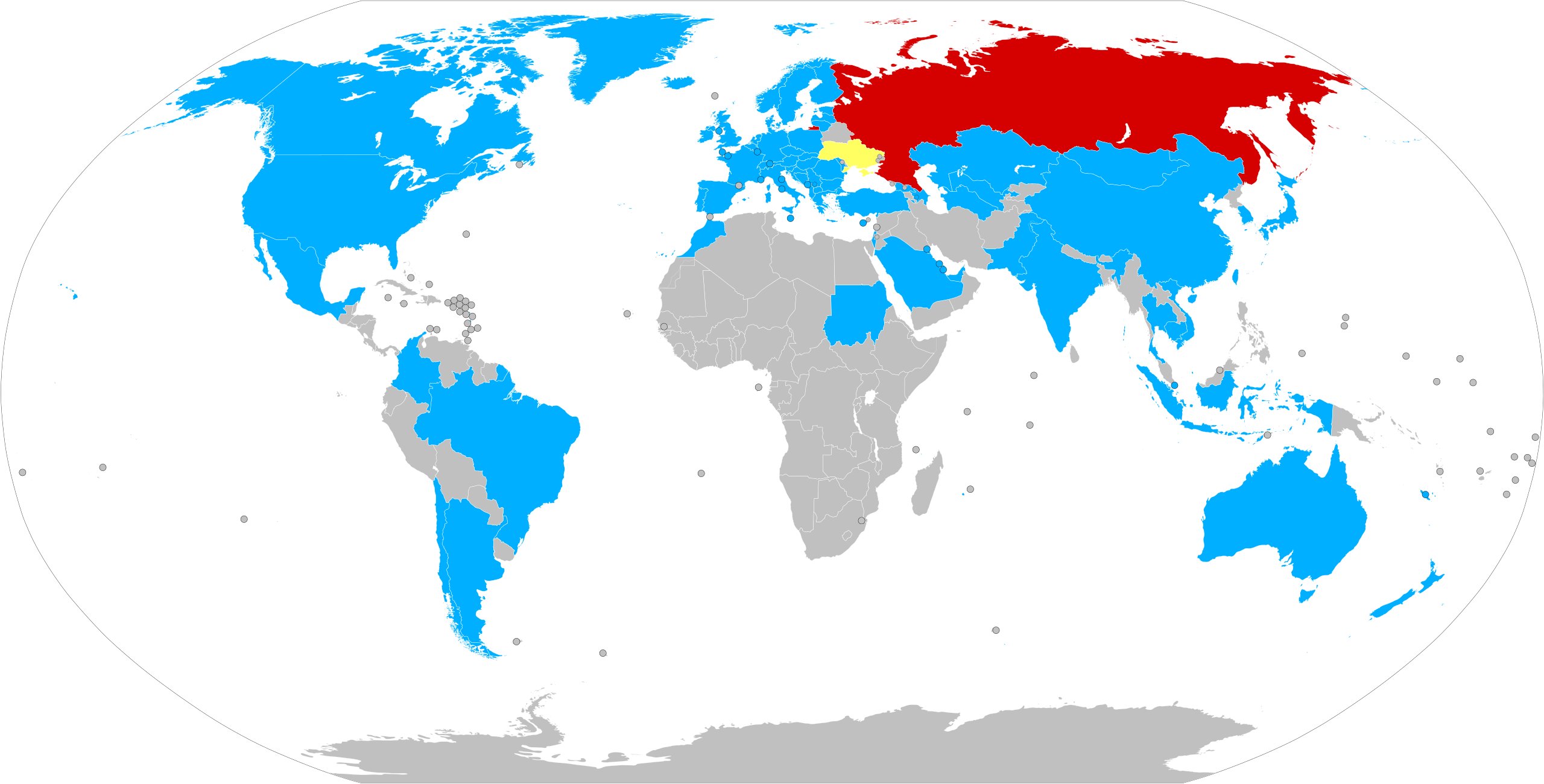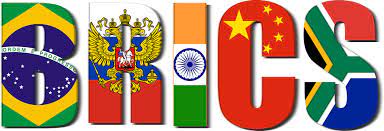
Segida
George Szamuely@GeorgeSzamuely
And we will never know what happened. Truly a mystery for the ages.
Txioa aipatu
Aaron Maté@aaronjmate
urt. 27
At a Senate hearing, top US diplomat Victoria Nuland celebrated the Nord Stream 2 pipeline bombing: “Senator Cruz, like you, I am, and I think the administration is, very gratified to know that Nord Stream 2 is now, as you like to say, a hunk of metal at the bottom of the sea.”
Erakutsi haria
oooooo
Hungarian Prime Minister during a Trianon memorial: “The West drew the borders of Central Europe without any moral concern. Just as they drew the borders of Africa and the Middle East.”-Orbán Viktor
Bideoa, hemen: https://twitter.com/i/status/1618644660968378369
oooooo
George Szamuely@GeorgeSzamuely
It’s in the public record. It’s a very well-known document. I will post it here, just so that more people will get to see it. https://nsarchive.gwu.edu/document/16117
oooooo
George Szamuely@GeorgeSzamuely
Apropos German FM Annalena Baerbock’s declaration of war today, here is the commitment Germany made in Moscow on Sept. 12, 1990, when signing the Treaty on the Final Settlement with respect to Germany. Without this pledge, Germany would not have been allowed to reunite.
oooooo
@tobararbulu # mmt@tobararbulu
The global challenges in the face of an on-going pandemic, climate chang… https://youtube.com/live/JFpD_g8dgsI?feature=share
youtube.com
The global challenges in the face of an on-going pandemic, climate…
Annual Lecture at the University of Helsinki by Professor William Mitchell
oooooo
Chancellor Scholz’s cave to the international pressure to shame Germany into sending tanks into a war zone.
Bideoa, hemen: https://twitter.com/i/status/1618965591586672640
oooooo
George Szamuely@GeorgeSzamuely
The unspeakable @vonderleyen manages to get through a statement on the liberation of Auschwitz without once mentioning who actually did so.
oooooo
Remember, Russia wasn’t an enemy before the Neocons of the Obama administration engineered a coup in Maidan in 2014 and installed a Neo Nazi infiltrated gov in Kiev hostile to Russia and Russian speaking citizens of Ukraine. 2/
oooooo
They can try and re write history all they want, but it’s an inconvenient truth that the USSR lost 27 million people defeating the Nazi’s and they liberated Auschwitz. Not inviting Russia to the event is a petty and childish, and does not change the facts.
oooooo
Unilateral coercive measures are not a legitimate tool of foreign policy — but a grave violation of the UN Charter by the US, UK, Canada and EU — and a crime against humanity
oooooo
The US and EU have no right to call their unilateral coercive measures “sanctions”. They are arbitrary geopolitical measures. The US has zero moral superiority and is in no position to “punish” anybody.
oooooo
“Sanctions” is a cynical misnomer which wrongly suggests that the sanctioned country has committed a crime and that the country imposing sanctions has a legitimate right to do so.
oooooo
Using human rights as a pretext to impose unilateral coercive measures is profoundly cynical — it is a sacrilege against human dignity. It constitutes secular blasphemy.
oooooo
George Szamuely@GeorgeSzamuely
That’s great. Trouble is: Hungary is a member of NATO and the EU, and that is not their position.
Txioa aipatu
Zoltan Kovacs@zoltanspox
21 h
.@PM_ViktorOrban: We have made it clear that Hungary’s security comes first, and therefore Hungary is not at war with anyone. We want a ceasefire and peace talks.
Bideoa, hemen: https://twitter.com/i/status/1619343790489182208
oooooo
George Szamuely@GeorgeSzamuely
Auditioning to head the post-Zelensky regime?
Txioa aipaitu
Baron of the Taiga@baronitaigas
16 h
: Former presidential advisor Arestovich condemns moves to ban the Russian language from universities in the country.
oooooo
Ian Puddick – Gin Rum Distiller@ianpuddick
George have you seen @georgegallowayexcellent piece on this ?
youtube.com
Liberators of #Auschwitz banned. Perpetrators of the Holocaust…
Liberators of #Auschwitz banned. Perpetrators of the Holocaust welcomed. George Galloway on a European obscenity. #Holocaust #HMD2023
oooooo
@tobararbulu # mmt@tobararbulu
Truth About Tanks: How NATO Lied Its Way to Disaster in Ukraine:
oooooo
Truth About Tanks: How NATO Lied Its Way to Disaster in Ukraine
Scott Ritter
Tank warfare has evolved. The large force-on-force armored battles that were the hallmark of much of WWII, the Arab-Israeli conflicts, which served as the foundation of operational doctrine for both NATO and the Soviet Union (and which was implemented in full by the United States during Operation Desert Storm in 1991), has run its course.
Like most military technological innovations, the ability to make a modern main battle tank survivable has been outstripped by the fielding of defensive systems designed to overcome such defenses. If a modern military force attempted to launch a large-scale tank-dominated attack against a well-equipped peer-level opponent armed with modern anti-tank missiles, the result would be a decisive defeat for the attacking party marked by the smoking hulks of burned-out tanks.
Don’t get me wrong: tanks still have a vital role to play on the modern battlefield. Their status as a mobile bunker is invaluable in the kind of meat-grinder conflicts of attrition that have come to define the current stage of large-scale ground combat. Speed and armor still contribute to survivability, and the main gun of a tank remains one of the deadliest weapons on the modern battlefield.
But the modern tank performs best as part of a combined arms team, supported by infantry (mounted and unmounted) and copious amounts of supporting arms (artillery and close air support.) As part of such a team, especially one that is well-trained in the art of close combat, the tank remains an essential weapon of war. However, if operated in isolation, a tank is simply an expensive mobile coffin.
Much has been made about the recent decision made by NATO and allied nations to provide Western main battle tanks to Ukraine. The politics of this decision is its own separate topic. This article will address the operational practicalities of this decision, namely has the military capability of Ukraine been enhanced through the provision of these new weapons systems.
To answer this question, one needs to examine three basic issues: training, logistical sustainability, and operational employment.
Training
It takes 22 weeks to train a basic American M1 Abrams crewmember. That training just gives the soldier the very basic skill set to be functional. Actual operational expertise is only achieved through months, if not years, of additional training in not just the system itself, but employing it as part of a similarly trained combine arms team. Simply put, even a Ukrainian tank crew experienced in the operation of Soviet-era T-72 or T-64 tanks will not be able to immediately transition to a Western-style main battle tank.
First and foremost, the crew size of a Soviet-era tank is three, reflecting the reality that the Soviet tanks make use of an automatic loading mechanism. Western tanks have four crew members because the loading of the main tank gun is done manually. Adapting to these dynamics takes time, and requires extensive training.
Training is expensive. NATO is currently providing Ukraine with three types of Western main battle tank: the British Challenger 2, the German Leopard 2, and the American M1A2. There is no unified training course—each tank requires its own unique training prospectus that is not directly transferable to another system.
The decentralized training processes created by such a diverse approach promotes inefficiencies and generates discrepancies in outcome—one crew will not be like another, which in combat, where units are supposed to be interchangeable to promote predictable outcomes if all other circumstances remain the same, is usually fatal.
Moreover, these problems will only be enhanced by the emphasis that will be placed on rapid outcomes. The reality is whatever training programs that are developed and delivered by the nations providing the tanks will be insufficient to the task, resulting in poorly trained crews taking extremely complicated weapons systems into the most dangerous environment in the world for a tank—the teeth of a Russian Army designed and equipped to kill these very same tanks.
Logistical Sustainability
Tanks are among the most technically challenging weapons systems on a modern battlefield. They are constantly breaking down, especially if not properly maintained. For the M1 Abrams, for every hour a tank is in the field, there are three hours of maintenance time required. This problem only becomes magnified in combat.
Normally an armor unit is equipped with highly specialized organic maintenance crews that can repair most of the minor issues that can sideline a tank. Given the training requirements to produce this level of high-quality mechanic, it is unlikely Ukraine will be provided with this kind of maintenance support.
This means that the tanks that are being provided to Ukraine will need to be returned to NATO nations for any significant repairs of equipment that is damaged through simple usage or actual combat. In short, it is highly likely that a Western main battle tank in Ukrainian hands will break down at some point during its operational use by Ukraine, meaning that the total number of tanks available to Ukraine will be far less than the number of tanks provided.
Operational Employment
Ukraine’s commander in chief of the Armed Forces, General Valerii Zaluzhnyi, told The Economist last month that he needed 300 tanks, 500 infantry fighting vehicles, and 500 artillery pieces, if he were going to have any chance of defeating Ukraine.
Following the January 20 meeting of the Ramstein Contact Group, and subsequent follow-on discussions about the provision of tanks, NATO and its allied partners have agreed to provide less than 50% of the number of tanks requested, less than 50% of the number of infantry fighting vehicles requested, and less than 20% of the artillery requested.
Moreover, the timetable for delivery of this equipment is staggered incoherently over a period that stretches out for many months, and in some cases extends into the next year. Not only does this complicate training and logistical sustainability issues that are already unfavorably inclined for Ukraine, but it makes any meaningful effort to integrate this material into a cohesive operational employment plan all but impossible. In short, Ukraine will be compelled to commit the equipment provided—especially the tanks—into combat in piecemeal fashion.
The truth about tanks is that NATO and its allied nations are making Ukraine weaker, not stronger, by providing them with military systems that are overly complicated to operate, extraordinarily difficult to maintain, and impossible to survive unless employed in a cogent manner while supported by extensive combined arms partners.
The decision to provide Ukraine with Western main battle tanks is, literally, a suicide pact, something those who claim they are looking out for the best interests of Ukraine should consider before it is too late.
oooooo
Victoria Nuland is one shameless Warhawk. There’s audio of her involvement to depose Yanukovych, video of her handing out cookies for her candidate. The Maidan op was led by the State Dept, ending w 14000 dead. The “fight” is killing Ukrainians & the EU’s economy to sink Russia.
Txioa iapatu
Under Secretary Victoria Nuland@UnderSecStateP
urt. 27
Today, I thanked the Senate Foreign Relations Committee for continued bipartisan support to ensure Ukraine can defend itself from Russia’s aggression. Ukraine’s fight is about more than Ukraine, it is about the world our own children and grandchildren will inherit.
Bideoa, hemen: https://twitter.com/i/status/1618791223040348160
oooooo
Bill Gates, 2023: “China’s rise is a huge win for the world”
Bideoa, hemen: https://twitter.com/i/status/1619681621506166785
oooooo
Definition of ramshackle? See below.
Jason Pates @JasonPates
urt. 30
@adamhousley erabiltzaileari erantzuten
Here are the 46 countries in the “ramshackle coalition” providing foreign aid to Ukraine. They are in blue.
oooooo
The United Nations and Unilateral Coercive Measures
oooooo
The United Nations and Unilateral Coercive Measures
January 30, 2023
Continuing violation of the human rights of targeted populations by powerful states and how to demand accountability.
Oral statement of 28 January 2023 at the Opening of the International People’s Tribunal on U.S. Imperialism and Sanctions.
The scourge of unilateral coercive measures (UCM’s) on the enjoyment of human rights by billions of human beings worldwide has been the subject of examination and condemnation by numerous United Nations bodies for decades, notably by the General Assembly, the Commission on Human Rights, the Sub-commission on the Promotion and Protection of Human Rights, the Human Rights Council and its Advisory Committee, the UN Committee on Economic, Social and Cultural Rights and the Working Group on the Right to Development.
The Office of the UN High Commissioner for Human Rights[1] has repeatedly organized panel discussions to document the adverse impacts of unilateral coercive measures on the right to life, the right to health, the right to food, the right to clean water and sanitation, the right to housing, the right to work, the right to education etc. In my capacity as UN Independent Expert on International Order, I have participated in these panels.
UCM’s have been condemned as contrary to the UN Charter and customary international law, particularly because of the illegal extra-territorial application of domestic legislation, their assault on the sovereignty of States, the violation of the norm of non-intervention and non-interference in the internal affairs of States, freedom of commerce and navigation — principles which are enshrined in several international legal instruments. Moreover, it has been noted that the destabilizing impact of UCM’s on international order can amount to a threat to international peace and security within the meaning of article 39 of the UN Charter.
In 2014 the function of the Special Rapporteur on Unilateral Coercive Measures was created and the first two Rapporteurs, the late Dr. Idriss Jazairy[2] and Professor Alena Douhan[3] have submitted to the HR Council and General Assembly detailed thematic and country reports demanding the lifting of sanctions, in view of their detrimental impacts on nearly all human rights.
In his 2018 report to the Human Rights Council[4] the Independent Expert on International Order analysed the adverse impacts of UCM’s and financial blockades on the Venezuelan population, which demonstrably have caused and continue to cause many deaths as a result of scarcity of foods, medicines, medical equipment and parts. The report succinctly states: “Sanctions kill”[5]. UCM’s have also caused bankruptcies and unemployment, leading to mass emigration. Although these economic migrants are not refugees, their plight has been examined by the United Nations High Commissioner for Refugees.
Most recently the UN General Assembly adopted resolution 77/214 on 15 December 2022, condemning UCM’s and reaffirming prior resolutions, including. 76/161, 75/181, and 74/154.
Resolution 77/214 recalls inter alia that, according to the Declaration on Principles of International Law concerning Friendly Relations and Cooperation among States in accordance with the Charter of the United Nations, resolution 2625 (XXV) of 24 October 1970[6], and the relevant principles and provisions contained in the Charter of Economic Rights and Duties of States, proclaimed by the Assembly in its resolution 3281 (XXIX), in particular article 32 thereof, no State may use or encourage the use of economic, political or any other type of measures to coerce another State in order to obtain from it the subordination of the exercise of its sovereign rights and to secure from it advantages of any kind,
Resolution 77/214 further acknowledges that UCM’s are one of the major obstacles to the implementation of the Declaration on the Right to Development[7] and the 2030 Agenda for Sustainable Development[8].
In the specific case of US sanctions against Cuba, it bears repeating that the General Assembly has adopted 30 Resolutions condemning the US embargo against Cuba, the last one, Resolution 77/7 on 3 November 2022, with nearly universal approval. Only the US and Israel voted against it.
The last relevant Resolution by the Human Rights Council was Resolution 49/6 of 31 March 2022, reaffirming all prior resolutions including 46/1, recalling that the International Covenant on Civil and Political Rights and the International Covenant on Economic, Social and Cultural Rights stipulate that in no case may a people be deprived of its own means of subsistence, which frequently is precisely the purpose of UCM’s.
Res. 49/6 urges all States to stop adopting, maintaining or implementing unilateral coercive measures because they are contrary to international law, international humanitarian law[9], the Charter of the United Nations and the norms and principles governing peaceful relations among States, in particular those of a coercive nature with extraterritorial effects, which create obstacles to trade relations among States, thus impeding the full realization of the rights set forth in the Universal Declaration of Human Rights and other international human rights instruments, in particular the right of individuals and peoples to development. The Resolution calls upon States and relevant United Nations agencies to take concrete measures to mitigate the negative impact of unilateral coercive measures on humanitarian assistance, which should be delivered in accordance with General Assembly resolution 46/182 of 19 December 1991.
Unlike the near unanimity of the General Assembly in condemning the US embargo against Cuba, 14 states members of the Human Rights Council voted against the HRC resolution – among them the US and European Union states. This is a scandal, a disgrace for all of those states, who give lip service to human rights but bear responsibility for the deaths of the most vulnerable in Cuba, Nicaragua, Syria, Venezuela, Zimbawe and other countries targeted by the US.
ex injuria non oritur jus – No right emerges from a wrong
We must conclude that notwithstanding the obvious illegality of UCM’s and their proven incompatibility with the ICCPR and ICESCR, powerful states still impose UCM’s in total impunity. This is a matter that should be addressed by the General Assembly under article 96 of the UN Charter, requesting the International Court of Justice to issue an advisory opinion on the subject, in particular on the legal consequences of the continued violation of international law by those states that impose or comply with UCM’s and their obligation to make reparation to the victims. The ICJ should also examine the question whether UCM’s constitute the “use of force” within the meaning of Article 2(4) of the UN Charter. Indeed, modern wars are hybrid wars and encompass many forms of force and coercion, which are surely against the letter and spirit of the UN Charter.
Those states who impose UCM’s may try to escape responsibility by arguing that international law has changed, because so many States including the US, Canada, UK and EU have hitherto imposed sanctions and gotten away with it, thereby “legitimizing” the practice. This argument, however, contains a serious logical fallacy. Violating international law with impunity does not and cannot change international law. It simply illustrates the fact that at present there is no effective international mechanism to enforce international law. The general principle of law (article 38 of the ICJ statute) ex injuria non oritur jus makes it clear that no right emerges from a wrong.
Moreover, besides the responsibility of states for international wrongful acts, the international criminal aspect of UCM’s should be examined by the International Criminal Court. To the extent that tens of thousands of persons have demonstrably lost their lives as a direct or indirect result of sanctions regimes, it is provable that certain UCM’s constitute crimes against humanity for purposes of article 7 of the Rome Statute.
It is the duty of the international community to demand accountability from States imposing sanctions and to ensure that redress is provided for the victims of US imperialism and neo-colonialism.[10]
Notes.
[1] https://www.ohchr.org/en/unilateral-coercive-measures
[4] https://www.ohchr.org/en/special-procedures/ie-international-order/country-visits
[5] Ibid., para 39.
[6] http://un-documents.net/a25r2625.htm
[7] https://www.ohchr.org/en/instruments-mechanisms/instruments/declaration-right-development
[9] Collective punishment against civilian populations are contrary to the Hague and Geneva Conventions. See also Jeffrey Sachs and Marc Weisbrot — https://cepr.net/report/economic-sanctions-as-collective-punishment-the-case-of-venezuela/
[10] See Human Rights Council resolution 48/7 on the sequels of colonialism and neo-colonialism https://www.ohchr.org/en/hr-bodies/hrc/regular-sessions/session48/res-dec-stat
Alfred de Zayas is a law professor at the Geneva School of Diplomacy and served as a UN Independent Expert on International Order 2012-18. He is the author of ten books including “Building a Just World Order” Clarity Press, 2021.

